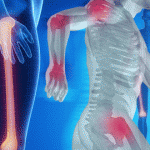Dr. George M. Weinstock from The Jackson Laboratory for Genomic Medicine in Farmington, Conn., who wrote an accompanying editorial, said the new findings point to the potential importance of the human microbiome.
“One imagines that there is a window early in life when external microbes are entering the body and colonizing and during this period it may be possible to intervene or direct the assembly of the microbiome with probiotics,” he told Reuters Health by email. “After this period there may be enough colonization to make it difficult to displace the existing microbiota. It is also possible that autoimmune effects begin during this early window and that is a critical period to interfere with this deleterious activation of the immune response.”
“If confirmed, I would anticipate probiotic treatment of at-risk infants would be a recommended protocol,” Dr. Weinstock said. “Bear in mind that the benefit was only seen for children with the DR3/4 HLA genotype, so the treatment might only be recommended for these babies.”


